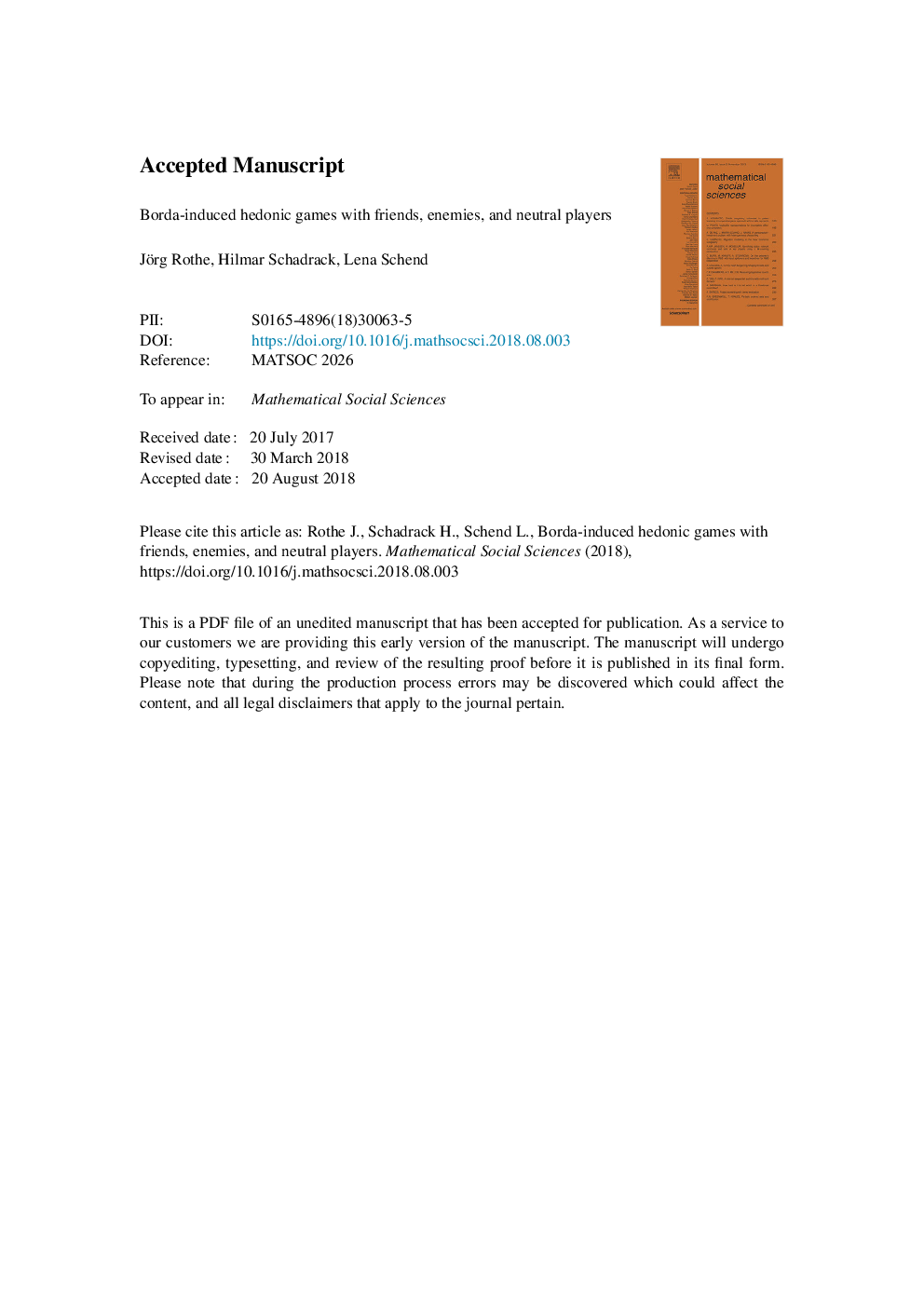| Article ID | Journal | Published Year | Pages | File Type |
|---|---|---|---|---|
| 10153756 | Mathematical Social Sciences | 2018 | 32 Pages |
Abstract
In a FEN-hedonic game, each player partitions the set of other players into friends, enemies, and neutral players and ranks her friends and enemies. Assuming that preferences are monotonic with respect to adding friends and antimonotonic with respect to adding enemies, we use bipolar responsive extensions to lift the players' rankings of players to their (partial) preferences over coalitions. We propose cardinal comparability functions in order to extend partial to complete preference orders consistent with these polarized responsive orders, in particular focusing on Borda-induced FEN-hedonic games. For a number of common solution concepts, we study the computational complexity of the existence and the verification problem.
Related Topics
Physical Sciences and Engineering
Mathematics
Applied Mathematics
Authors
Jörg Rothe, Hilmar Schadrack, Lena Schend,
